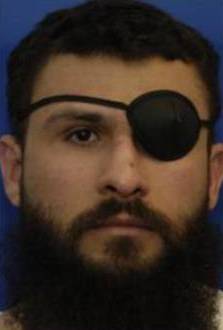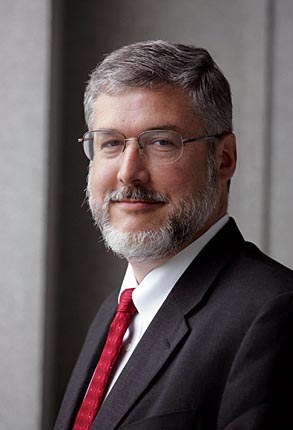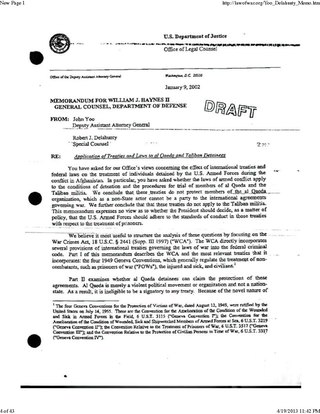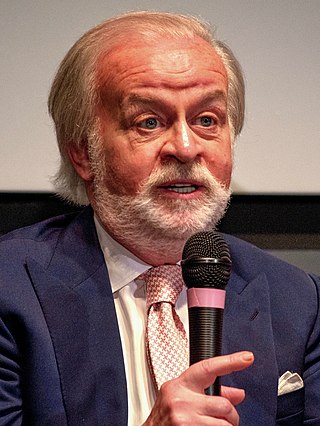
Mary Walker (born December 1, 1948) is an American lawyer who served as a high-ranking appointee under Presidents Ronald Reagan, George H.W. Bush and George W. Bush.

Mary Walker (born December 1, 1948) is an American lawyer who served as a high-ranking appointee under Presidents Ronald Reagan, George H.W. Bush and George W. Bush.
Mary L. Walker was born in Dayton, Ohio on December 1, 1948. [1] She was educated at the University of California, Berkeley, receiving an A.B. in Biological Sciences in 1970. [1] She then attended both UCLA Law School and Boston University School of Law, receiving a J.D. in 1973. [1]
Walker joined the legal department of the Southern Pacific Transportation Company in San Francisco in 1973. [1] She worked there until 1976 when she joined the law firm of Richards, Watson, Dreyfuss & Gershon in Los Angeles. [1] She was made a partner in 1979, working there until 1982. [1]
In 1982, Walker accepted an appointment in the United States Department of Justice as Principal Deputy Assistant Attorney General in the Land and Natural Resources Division. [1] From 1984 to 1985, she was the Deputy Solicitor of the United States Department of the Interior. [1] On September 18, 1985, President of the United States Ronald Reagan nominated her to be Assistant Secretary of Energy (Environment, Safety, and Health). [1] She was confirmed by the Senate and held this office until 1988. [2]
She spent 1988-89 as Vice President of Law Environmental Inc. [2] She was a partner at Richards, Watson & Gershon and their managing partner in San Francisco from 1989 to 1991. [2] She was a partner of Luce, Forward, Hamilton & Scripps in San Diego from 1991 to 1994, and then a partner at Brobeck, Phleger & Harrison in San Diego from 1994 to 2001. [2]
She was also a U.S. Commissioner on the Inter-American Tropical Tuna Commission from 1988 to 1995, a Presidential Appointment. [2]
An evangelical Christian, Walker co-founded the Professional Women's Fellowship in San Diego, a group related to Campus Crusade for Christ.
On September 26, 2001, President George W. Bush nominated Walker to be General Counsel of the Air Force. She was confirmed by the Senate and held this office for the duration of the presidency of George W. Bush. As of 2009, she is the longest-serving General Counsel in the history of the Department of the Air Force. During her tenure there, she received many awards for her service.

Walker returned to private practice in 2009 and, as an independent contractor, provides legal services to private clients and law firms. [3]
Walker is divorced and has one son. She lives in San Diego.
On January 15, 2003, as a result of concern expressed by the Army that more techniques were needed to interrogate the terrorists being held at Guantanamo, the United States Secretary of Defense Donald Rumsfeld ordered a review of what additional techniques might be available and permissible under law. Two days later, William J. Haynes, II, the General Counsel of the United States Department of Defense designated Walker as the head of a departmental working group tasked with implementing the Secretary's request. [4] Walker established a committee of the senior lawyers in the Pentagon, both military and civilian, and a career-level working group having expertise in the substantive issues and additional techniques to be given legal and policy review.
The next week, Walker received an extensive legal memorandum, written in 2001, from the Office of Legal Counsel of the U.S. Department of Justice, authored by John Yoo and signed by Jay Bybee, the head of the Office of Legal Counsel. She was advised by William J. Haynes, General Counsel of the Department of Defense, that this legal analysis would be controlling. As the two working groups proceeded to conduct their review, on January 23, 2003, General Counsel of the Navy Alberto J. Mora, a member of the senior legal group, reviewed a hard copy of that memorandum in Walker's office [5] (copies were not made widely available pursuant to instructions of William J. Haynes, General Counsel of the Department of Defense). [6] This led to a disagreement between Mora and the senior legal group. Mora disagreed with the reasoning of the Department of Justice, whereas Walker agreed with Yoo's reasoning concerning the powers of the President. [7] Walker encouraged discussion among the legal team and invited Yoo to the Pentagon to answer their questions, which he did on two occasions. Walker also encouraged Mora to share his views and to meet with General Counsel Haynes. Mora met with Haynes and circulated an opposing draft memo. Haynes did not accept Mora's views, nor did any members of the senior legal committee.
On March 6, 2003, by a unanimous vote, all members of the senior legal group (including the Navy) presented their recommendations for new techniques to Secretary Rumsfeld. These had been proposed by the technical working group and were subject to legal and policy review by the senior legal team. The recommendations to Secretary Rumsfeld stated that the reasoning behind the Department of Justice memorandum was sound, although the group expressly stated it did not need to rely upon the more far-reaching conclusions of the Justice Department's memorandum concerning the powers of the President. The final report was presented on April 4, 2003. Secretary Rumsfeld adopted the vast majority of the new techniques proposed. At the Administration's request, the Justice Department subsequently reviewed the Working Group's recommendations that were adopted by Secretary Rumsfeld and fully endorsed them.

Abu Zubaydah is a Saudi Arabian currently held by the U.S. in the Guantanamo Bay detention camp in Cuba. He is held under the authority of Authorization for Use of Military Force Against Terrorists.

José Padilla, also known as Abdullah al-Muhajir or Muhajir Abdullah, is a United States citizen who was convicted in a federal court of aiding terrorists.

Janis Leigh Karpinski is a retired career officer in the United States Army Reserve. She is notable for having commanded the forces that operated Abu Ghraib and other prisons in Iraq in 2003 and 2004, at the time of the scandal related to torture and prisoner abuse. She commanded three prisons in Iraq and the forces that ran them. Her education includes a Bachelor of Arts degree in English and secondary education from Kean College, a Master of Arts degree in aviation management from Embry-Riddle Aeronautical University, and a Master of Arts in strategic studies from the United States Army War College.

During the early stages of the Iraq War, members of the United States Army and the CIA committed a series of human rights violations and war crimes against detainees in the Abu Ghraib prison in Iraq, including physical and sexual abuse, torture, rape and the killing of Manadel al-Jamadi. The abuses came to public attention with the publication of photographs of the abuse by CBS News in April 2004. The incidents caused shock and outrage, receiving widespread condemnation within the United States and internationally.

Yaser Esam Hamdi is a former American citizen who was captured in Afghanistan in 2001. The United States government claims that he was fighting with the Taliban against U.S. and Afghan Northern Alliance forces. He was declared an "illegal enemy combatant" by the Bush administration and detained for almost three years without charge. On October 9, 2004, on the condition that he renounce his U.S. citizenship and commit to travel prohibitions and other conditions, the government released him and deported him to Saudi Arabia, where he had been raised.

John Choon Yoo is a Korean-born American legal scholar and former government official who serves as the Emanuel S. Heller Professor of Law at the University of California, Berkeley. Yoo became known for his legal opinions concerning executive power, warrantless wiretapping, and the Geneva Conventions while serving in the George W. Bush administration, during which he was the author of the controversial "Torture Memos" in the War on Terror.

The Office of Legal Counsel (OLC) is an office in the United States Department of Justice that assists the Attorney General's position as legal adviser to the President and all executive branch agencies. It drafts legal opinions of the Attorney General and provides its own written opinions and other advice in response to requests from the Counsel to the President, the various agencies of the Executive Branch, and other components of the Department of Justice. The Office reviews and comments on the constitutionality of pending legislation. The office reviews any executive orders and substantive proclamations for legality if the President proposes them. All proposed orders of the Attorney General and regulations that require the Attorney General’s approval are reviewed. It also performs a variety of special assignments referred by the Attorney General or the Deputy Attorney General.

David Spears Addington is an American lawyer who was legal counsel (2001–2005) and chief of staff (2005–2009) to Vice President Dick Cheney. He was the vice president of domestic and economic policy studies at the Heritage Foundation from 2010 to 2016.

Alberto José Mora is a former General Counsel of the Navy. He led an effort within the Defense Department to oppose the legal theories of John Yoo and to try to end the use of torture at Guantanamo Bay.

Susan Morrisey Livingstone is a former Acting U.S. Secretary of the Navy in the George W. Bush administration from January–February 2003. She was the first woman to become Secretary of the Navy in U.S. history. Livingstone played a role in the effort to end coercive and abusive interrogation tactics at U.S. Naval Base Guantanamo Bay, Cuba. At the time, as Under Secretary of the Navy, Livingstone oversaw a large management portfolio, which included lawyers in the Navy General Counsel's office and investigators at the Naval Criminal Investigative Service who raised concerns about the treatment of detainees at Guantanamo Bay Naval Base.

William James "Jim" Haynes II is an American lawyer and was General Counsel of the Department of Defense during much of 43rd President George W. Bush's administration and his war on terror. Haynes resigned as general counsel effective March 2008.
"Enhanced interrogation techniques" or "enhanced interrogation" was a program of systematic torture of detainees by the Central Intelligence Agency (CIA), the Defense Intelligence Agency (DIA) and various components of the U.S. Armed Forces at remote sites around the world—including Bagram, Guantanamo Bay, Abu Ghraib, and Bucharest—authorized by officials of the George W. Bush administration. Methods used included beating, tickle torture, binding in contorted stress positions, hooding, subjection to deafening noise, sleep disruption, sleep deprivation to the point of hallucination, deprivation of food, drink, and medical care for wounds, as well as waterboarding, walling, sexual humiliation, rape, sexual assault, subjection to extreme heat or extreme cold, and confinement in small coffin-like boxes. A Guantanamo inmate's drawings of some of these tortures, to which he himself was subjected, were published in The New York Times. Some of these techniques fall under the category known as "white torture". Several detainees endured medically unnecessary "rectal rehydration", "rectal fluid resuscitation", and "rectal feeding". In addition to brutalizing detainees, there were threats to their families such as threats to harm children, and threats to sexually abuse or to cut the throat of detainees' mothers.
Kevin M. Sandkuhler is an American lawyer, and retired brigadier general in the United States Marine Corps. His 2003 memo expressing concerns about the US interrogation of terrorism suspects, released in 2005 after a declassification request by Senator Lindsey Graham, received national and international attention.

Peter M. Murphy is an American lawyer, and former senior legal advisor to the Commandant of the Marine Corps. Murphy was the Commandant's legal advisor twenty years prior to becoming a partner with the legal firm of Holland & Knight. At Holland & Knight Murphy specialized in Government litigation.

Patrick F. Philbin is an American lawyer who served as Deputy Counsel to the President and Deputy Assistant to the President in the Office of White House Counsel in the Donald J. Trump administration. He previously served in the Department of Justice during the George W. Bush administration.

Steven Gill Bradbury is an American attorney and government official who served as the General Counsel of the United States Department of Transportation. He previously served as Acting Assistant Attorney General (AAG) from 2005 to 2007 and Principal Deputy AAG from 2004 to 2009, heading the Office of Legal Counsel (OLC) in the U.S. Department of Justice during President George W. Bush's second term.
Robert J. Delahunty is an American attorney, legal scholar, and former government appointee who works as a professor at the University of St. Thomas School of Law in Minneapolis, Minnesota. From 1989 to 2003, he worked in the Office of Legal Counsel. During his tenure there, he cowrote several legal opinions with John Yoo relating to interrogation, detention, and rendition of terror suspects.

A set of legal memoranda known as the "Torture Memos" were drafted by John Yoo as Deputy Assistant Attorney General of the United States and signed in August 2002 by Assistant Attorney General Jay S. Bybee, head of the Office of Legal Counsel of the United States Department of Justice. They advised the Central Intelligence Agency, the United States Department of Defense, and the President on the use of enhanced interrogation techniques—mental and physical torment and coercion such as prolonged sleep deprivation, binding in stress positions, and waterboarding—and stated that such acts, widely regarded as torture, might be legally permissible under an expansive interpretation of presidential authority during the "War on Terror".

John Anthony Rizzo was an American attorney who worked as a lawyer in the Central Intelligence Agency for 34 years. He was the deputy counsel or acting general counsel of the CIA for the first nine years of the War on Terror, during which the CIA held dozens of detainees in black site prisons around the globe.

Steven Andrew Engel is an American lawyer. He served as the United States Assistant Attorney General for the Office of Legal Counsel in the Donald Trump administration. Engel, who previously worked in the George W. Bush administration as Deputy Assistant Attorney General in the Office of Legal Counsel, was nominated by President Donald Trump on January 31, 2017, and confirmed on November 7, 2017. On January 20, 2021, he was succeeded by Christopher H. Schroeder, serving under the Biden Administration.